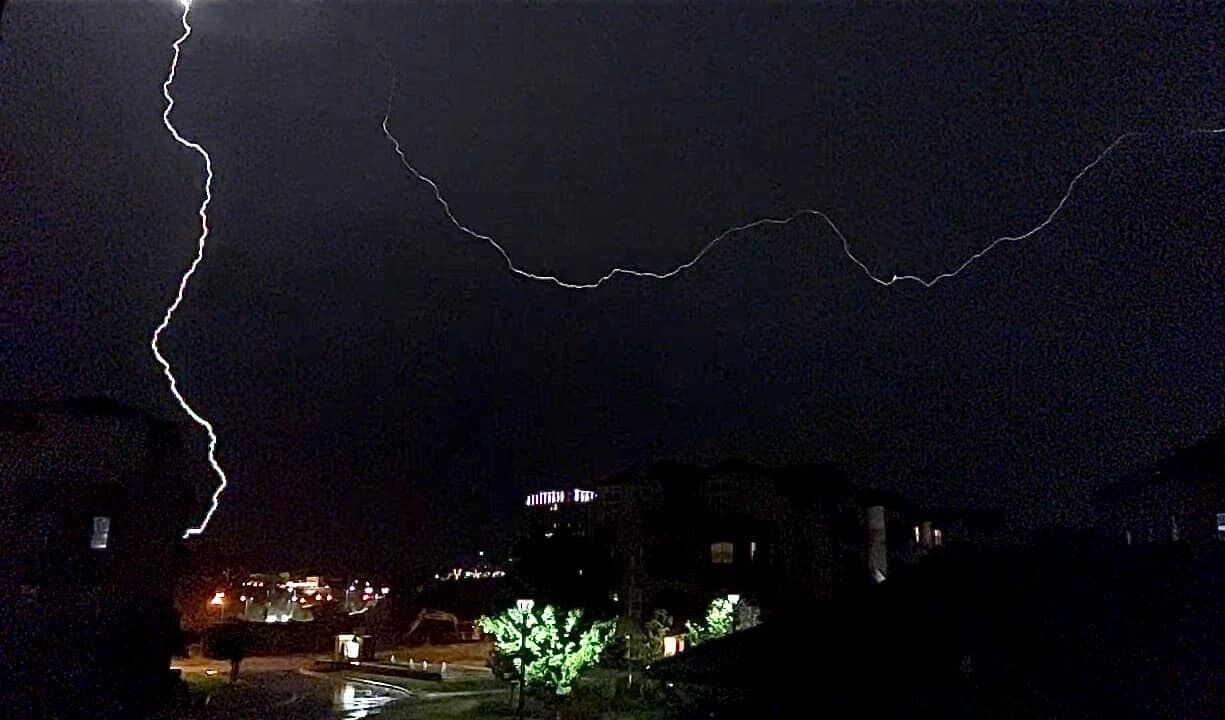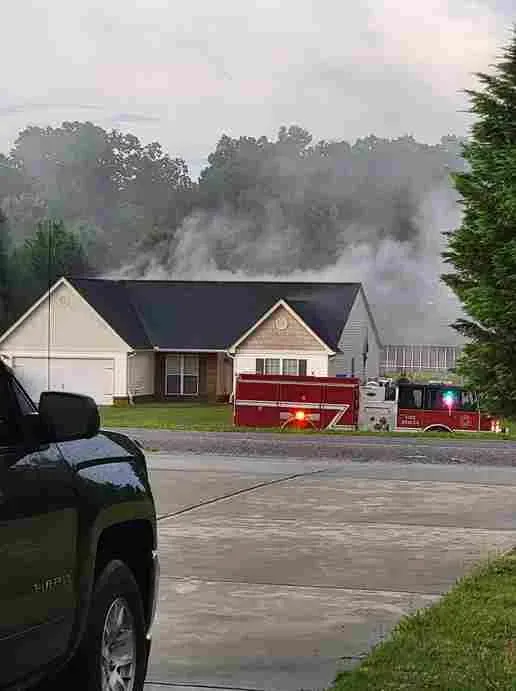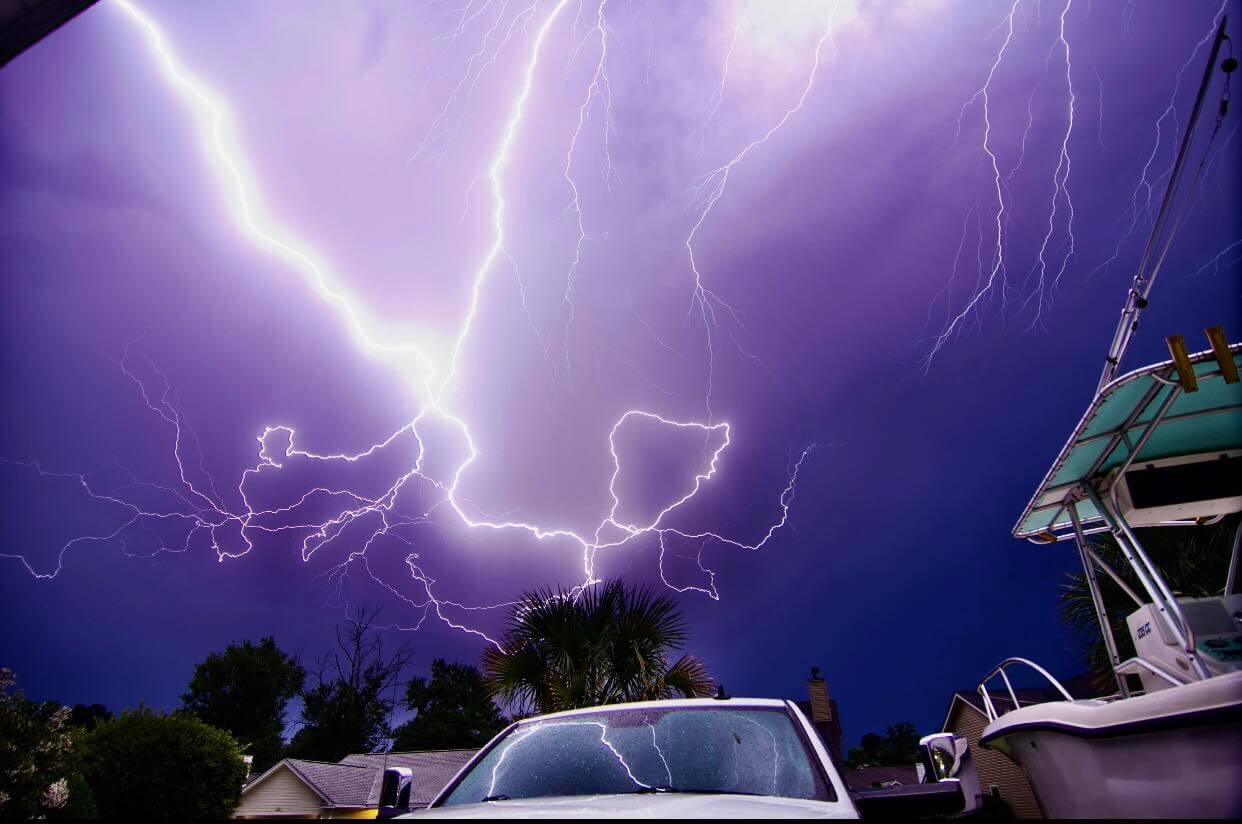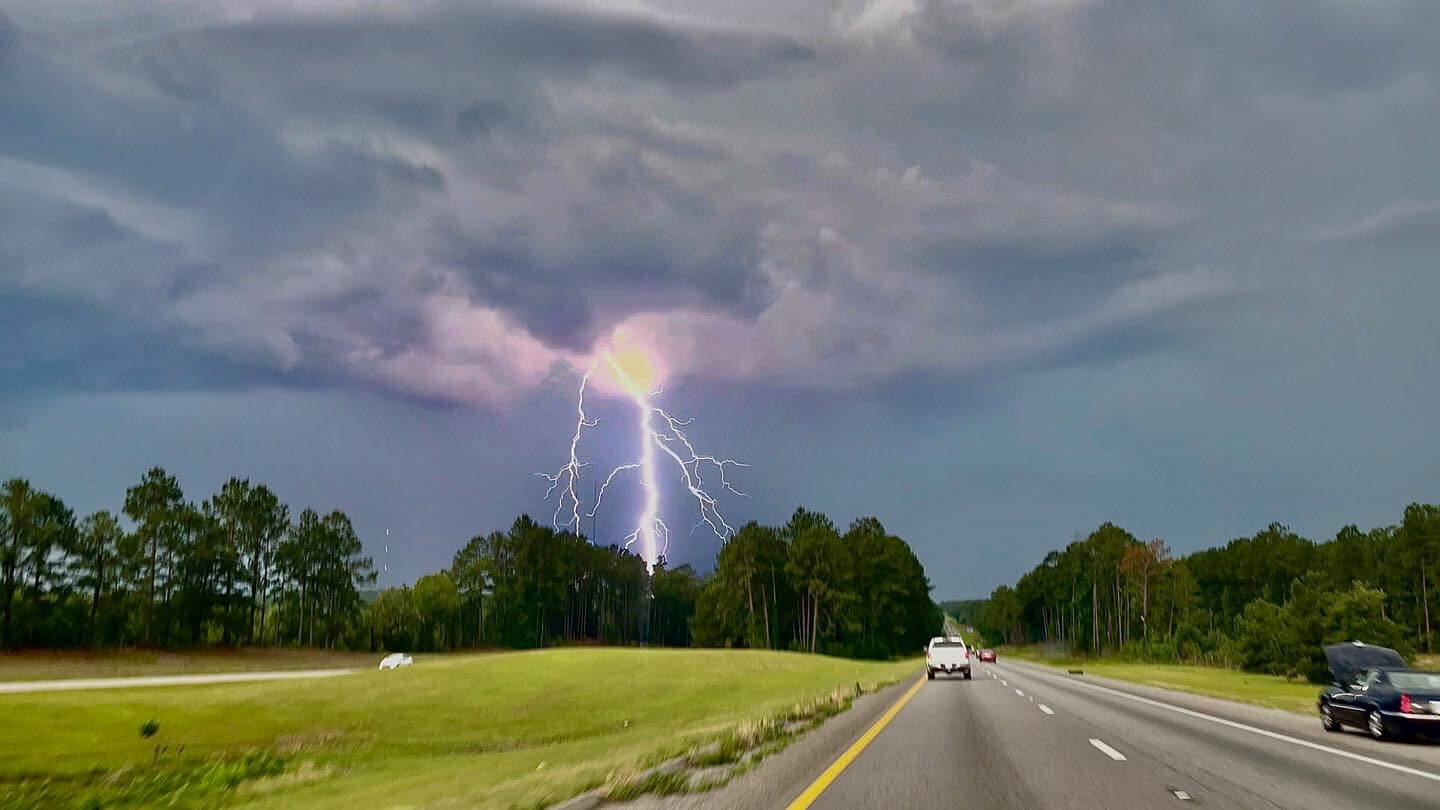Do Lightning Strikes Cause House Fires [You'll Be Surprised]
Lightning can cause house fires, acting like a forceful bolt that charges through your home, similar to a wildfire. A direct strike on your home usually causes these lightning strikes, which can kindle an inferno in an instant. The direct strike is the most dangerous and can cause structural damage to your home, as well as generate intense heat. A direct strike can also cause electric shock waves, fire, and other electrical hazards akin to a thunderstorm. The impact of such events on the fire department and homeowners' health cannot be overstated.
Lightning flashes can create a large amount of energy, which can be fatal if it hits your home. Lightning causes fires in homes through direct strikes, but if you have an open flame, such as a blaze from a torch, or live near a tree that has been struck by lightning, you may also have a fire hazard in your home. Research on lightning fire patterns helps in understanding how to better protect people and property.
The best way to prevent lightning from striking your home is by getting electric surge protectors for your electrical system. It will help protect against any electrical surges that could cause problems with your home's electrical system or appliances, such as air conditioners, refrigerators, and other appliances.

How many house fires are caused by Lightning?
According to the National Fire Protection Association, the average number of lightning fires reported to fire departments is 22,600 annually. Each year, nine civilians die, 53 are injured, and $451 million is lost in direct property damage due to lightning-related fires. Lightning can also cause other types of property damage, such as broken windows and downed trees.
How Do Lightning Strikes Cause Home Fires
Lightning strikes cause house fires because the lightning causes a surge of electricity. The wave of electricity can cause sparks to fly in the air, which are then picked up by dry vegetation and other flammable materials. Lightning can also strike wires, creating electrical arcs that result in fires.
In addition, if a house has an unsecured chimney, lightning can travel up the chimney and cause a fire in the attic or roof area of a home. Brick and stone chimneys are commonly damaged severely by lightning.
The most common lightning strike that causes house fires is direct hits on houses. Direct hits are lightning strikes directly above or below an object or structure without first striking any intervening objects. Direct lightning strike hits can also occur if a cloud passes over a house and gets hit with multiple bolts at once.

What Percentage Of House Fires Are Started By Lightning Strikes
Home lightning fires accounted for 86% of the civilian lightning fire deaths and injuries during 2007-2011 and 68% of the direct property damage, despite only 19% of all reported lightning fires. Lightning-related fires were reported to local fire departments nearly two-thirds (63%) of the time.
During the summer months and in the late afternoons and early evenings, lightning fires are most likely to occur. From 2008-2012, lightning is responsible for an average of 9,000 fires (12%) per year. Lightning-caused wildfires burned 402 acres on average, nine times more than human-caused fires.
How often do lightning strikes cause home fires?
According to NBC and the National Fire Protection Association, local fire departments are called out to 22,600 lightning-caused fires in the United States each year. Based on the total number of calls between 2007 and 2011, that 22,600 figure represents the five-year average.
There are two main reasons lightning may start a fire:
The discharge current from a lightning strike transfers burning material from the strike itself or nearby trees into your home. In some cases, this material ignites furniture or other flammable objects inside your home, like a torch igniting dry kindling.
A direct hit on a structure during thunderstorms can cause an electrical short circuit that generates an electrical fire or explosion, posing a significant risk to people and property.
WE CAN HELP WITH ANY SITUATION AND WE'RE READY TO GIVE YOU A FAIR CASH OFFER!
Enter Your Information Below it is Quick, Easy & Free!
Get Cash Offer
What are the chances of statistics being struck by lightning?
In the U.S., lightning storms are a significant cause of death. The victim may have a delayed death after a lightning strike if they are resurrected but have suffered irreversible brain damage. Lightning strikes can cause cardiac arrest (heart-stopping) right at the moment of the injury. Various factors, such as resistance to atmospheric effects and rain, influence a person's vulnerability to lightning during storms.
The NWS Storm Data shows that the U.S. has experienced 43 lightning fatalities on average each year over the last 30 years (1989-2018).
It has been estimated that only 10% of lightning victims die, with 90% suffering varying degrees of disability. In the last decade (2009-2018), there were an average of 27 lightning fatalities in the U.S.

What is the Fire Hazard of direct lightning passing?
Lightning presents three main hazards to a house that is hit directly:
Fire danger:
The biggest danger lightning poses to a house's structure is because exposed lightning channels can ignite wood and other flammable materials. Attics and rooftops are the most likely places for lightning-related fires to start, since lightning must pass through structures before reaching pipes or wiring. Lightning currents burn up wires, posing a fire ignition hazard.
Lightning's shock waves damage:
It is also possible for buildings to be damaged by an explosive shock wave. Lightning can produce thunder, which is a destructive close-up. Bricks and stone chimneys tend to get badly damaged by lightning. Lightning can blow out plaster walls, shatter glass, create trenches in the soil, and crack foundations.
Power surge damage:
A lightning strike can damage non-electronic appliances if it strikes the home's electrical wiring as its primary or secondary path. The home's electrical system will experience a surge, even if most of the lightning current goes elsewhere on the ground. This could cause significant damage to electronics, in particular.
What To Do If Your House Burns Down Due To A Lightning Strike
If your house burns down due to a lightning strike, it can be an overwhelming and distressing experience, but it's important to stay calm and take immediate action. Expert tips to sell your fire damaged home successfully come into play once the safety concerns are addressed. First and foremost, ensure the safety of yourself and your family by evacuating the premises as quickly as possible. Call the emergency services right away to report the fire and request assistance. While waiting for help to arrive, do not attempt to re-enter the house, as it may still be dangerous. If you have important documents or valuables that can be safely retrieved, and only if time permits, try to do so cautiously.
Need to sell a fire damaged house? After ensuring everyone's safety, you may want to consider seeking the help of professional real estate investors who specialize in dealing with fire-damaged properties.
Sell your fire-damaged property quickly and efficiently:
Reach out to friends or family to seek temporary shelter and support during this difficult time. Once the situation has been stabilized, you may consider
discovering the best approach to selling a home damaged by fire, aiming to
maximize the value of your fire-damaged property through proper documentation, thorough assessment of damages, and involving experts or professionals to aid in the process. Contact your insurance company to start the claims process and begin the steps toward rebuilding and recovering from the loss. Remember to take care of your emotional well-being and seek professional help if needed to cope with the trauma of losing your home.

What Causes Fires After Lightning Strikes?
Lightning can cause fires in several ways:
Electrical fires:
Lightning strikes can cause electrical fires in homes, cars, and other structures. Lightning strikes tend to strike homes and vehicles with exposed lightning channels, wiring, or metal objects like metal gutters or drainpipes. These systems are especially vulnerable because the electricity flowing through them is more likely to arc from one conductor to another when lightning strikes.
Firework explosions:
Firework shrapnel from exploding fireworks can also cause fires after lightning strikes. In some cases, the pieces will break off and fly through the air like shrapnel, while others will be carried into the structure where they will still explode after hitting something else (usually another object).
Burning debris:
When lightning hits an object covered with combustible materials like wood, hay, or straw, it may set those materials alight due to static electricity buildup or friction caused by moving air currents between the object and the ground. These burning materials can then be carried by the wind or hit electricity lines, setting fire to other things.

Happy Customers




